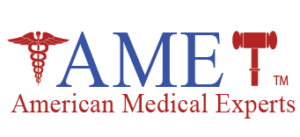A heart attack, or cardiac arrest, occurs when the patient suffers an interruption of blood flow to his or her heart. This occurs most commonly as a result of blockage. Symptoms of heart attack include shooting pains in the extremities, chest pains, shortness of breath, vomiting, sweating, and nausea. Heart attacks must be treated as quickly as possible to save the patient’s life. One of AME’s heart attacks/cardiac arrest expert witnesses has written an exclusive medical malpractice article that we have provided, for your interest, below.Misdiagnosis of a Heart Attack A heart attack (myocardial infarction) is the most common cause of death in both men and women. Failure to timely treat will result in further irreversible heart damage with the consequence of heart failure, or worse: death. Classical crushing chest pain is most common in men, but not in women(who more commonly experience jaw, back or arm pain, or just fatigue). Whenever any adult has symptoms of a heart attack, the following test must be performed: an electrocardiogram (EKG), plus blood enzyme test to rule out heart muscle injury (troponin and CPK). Even if these are initially normal, the patient should be monitored in a hospital for 24 hours, and retested, especially if they have high risk factors: a previous heart attack, high blood pressure, diabetes, high cholesterol (especially if their LDL {“lousy” cholesterol} is greater than 100), and if they have a family history of a heart attack. The failure to do this is a departure from the accepted standards of care. Whenever a heart attack is diagnosed, the best treatment is to use blood clot dissolving medication (tPA: tissue plasminogen activator) within 4 hours to reopen the blocked coronary artery before irreversible heart muscle damage (necrosis: gangrene) occurs. Furthermore, continuous EKG monitoring will allow immediate treatment of any irregular heart rhythm (arrhythmias) before they cause ventricular fibrillation (just twitching of the heart muscle, without any blood pressure being created). Electrical defibrillation (electric shock to the heart) when immediately performed can often restart the heart, saving the patient’s life and brain before irreversible damage results. If the patient sustained a heart attack and was negligently misdiagnosed, but did not die, the psychological damage can be extensive: heart muscle damage with some degree of heart failure: decreased cardiac pumping efficiency measured by a lower ejection fraction, plus higher risk for a fatal heart attack, and greater need for invasive procedures: angioplasty or coronary artery bypass graft (CABG), with their risks and expenses.
- About us
- Complete case reviews
- Expert witness reports
- Fee Schedule
- Become an expert
Copyright © 2017 – American Medical Experts

